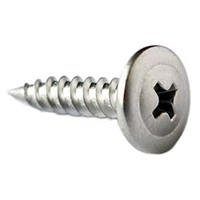Comparative Pricing for Plate Washers and Flat Washers in the Industry
Understanding Plate Washers vs. Flat Washers A Price Comparison
When it comes to mechanical applications, washers play a crucial role in ensuring the integrity and durability of connections. Among the various types of washers available, plate washers and flat washers are two commonly used options. Though they serve the same basic function—to distribute load and prevent damage to the mating surfaces—they differ significantly in design, application, and price. In this article, we will explore the differences between plate washers and flat washers and provide insights into their pricing structures.
What Are Washers?
Washers are circular discs with a central hole, commonly made of metal or plastic. They are used in conjunction with screws, bolts, or nuts to improve load distribution, reduce friction, and prevent failure due to loosening or corrosion. Depending on their design, washers can be categorized into various types, with the most common being flat washers, spring washers, and plate washers.
Flat Washers
Flat washers are the most commonly used type of washer. They are thin, flat discs that come in various sizes and thicknesses. Their primary function is to distribute the load of a fastener such as a bolt or nut across a wider surface area, thereby minimizing the risk of damage to the material they are attached to. Flat washers also help with spacing and can accommodate slight variations in surface irregularities.
These washers can be made from a variety of materials, including steel, stainless steel, brass, and plastic. Their price can vary greatly depending on the material, size, and quantity needed, but they are generally quite economical. A standard flat washer may cost anywhere from a few cents to a couple of dollars in bulk, making it a cost-effective choice for many applications.
Plate Washers
plate washer vs flat washer pricelist

In contrast, plate washers are thicker than flat washers and usually have a greater outer diameter compared to their inner diameter. This design allows them to bear more load and provide a stiffer surface for applications that require higher resistance to deformation. Plate washers are often used in heavy-duty applications, such as in construction, automotive, and machinery frameworks.
The manufacturing materials for plate washers can also vary, including steel and aluminum, and they may be coated for added protection against corrosion and wear. Due to their thicker design and heavier-duty applications, plate washers typically command a higher price than standard flat washers. Depending on their specifications, a plate washer can cost anywhere from a few dollars to over twenty dollars each, particularly for specialized or high-strength applications.
Price Comparison
When comparing prices between plate washers and flat washers, it is essential to consider not just the unit price but also the overall value they bring to a project. While flat washers may appear to be more affordable upfront, the application may dictate that a plate washer is necessary, thereby justifying the higher cost.
Furthermore, purchasing in bulk can result in cost savings for both types of washers. Buyers can often negotiate discounted rates with suppliers or find online vendors offering competitive prices for larger quantities.
Additionally, the long-term cost-effectiveness of using a particular type of washer should be taken into account. In high-stress or high-wear applications, the durability and reliability of a plate washer may prevent costly failures or repairs over time, making it a worthwhile investment.
Conclusion
Choosing the right type of washer—plate or flat—depends on the specific requirements of your application, including load capacity, space constraints, and material compatibility. While flat washers are typically more cost-effective and suited for lighter applications, plate washers offer enhanced durability and performance for heavy-duty tasks. By carefully evaluating the price and functionality of each type, you can make an informed decision that balances cost with performance, ensuring the longevity and reliability of your mechanical connections.
-
Top Choices for Plasterboard FixingNewsDec.26,2024
-
The Versatility of Specialty WashersNewsDec.26,2024
-
Secure Your ProjectsNewsDec.26,2024
-
Essential Screws for Chipboard Flooring ProjectsNewsDec.26,2024
-
Choosing the Right Drywall ScrewsNewsDec.26,2024
-
Black Phosphate Screws for Superior PerformanceNewsDec.26,2024
-
The Versatile Choice of Nylon Flat Washers for Your NeedsNewsDec.18,2024










